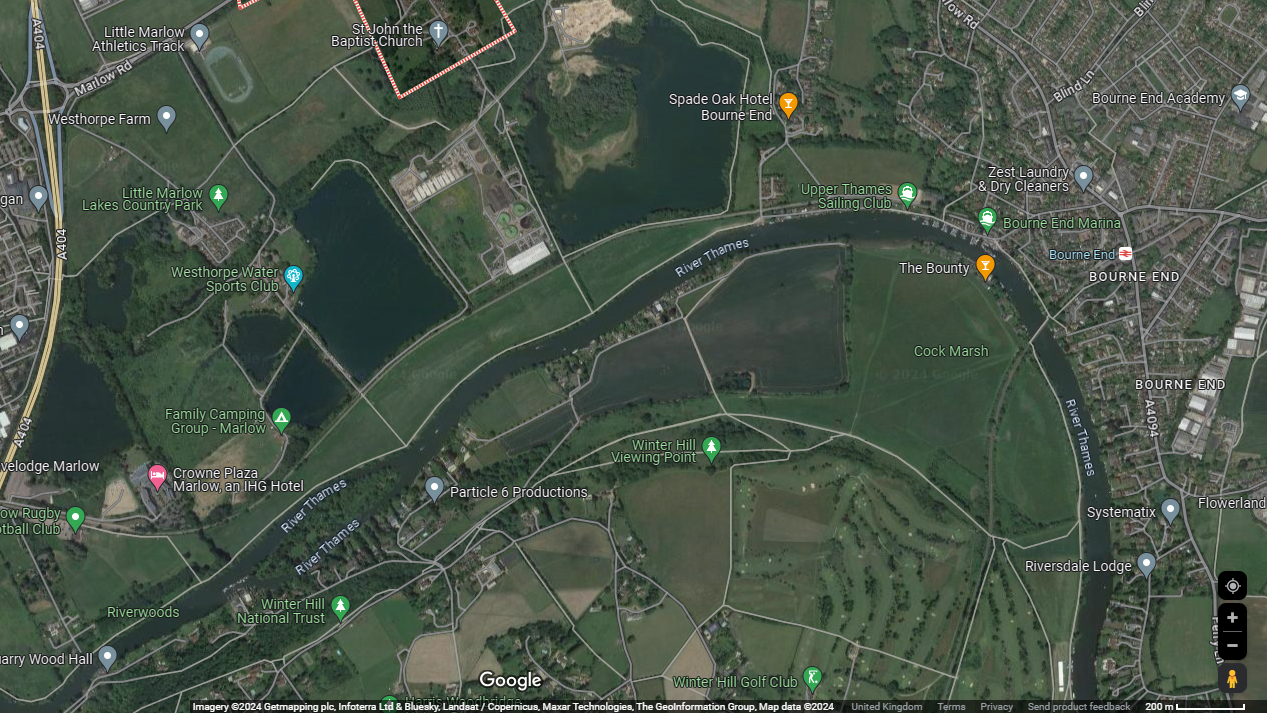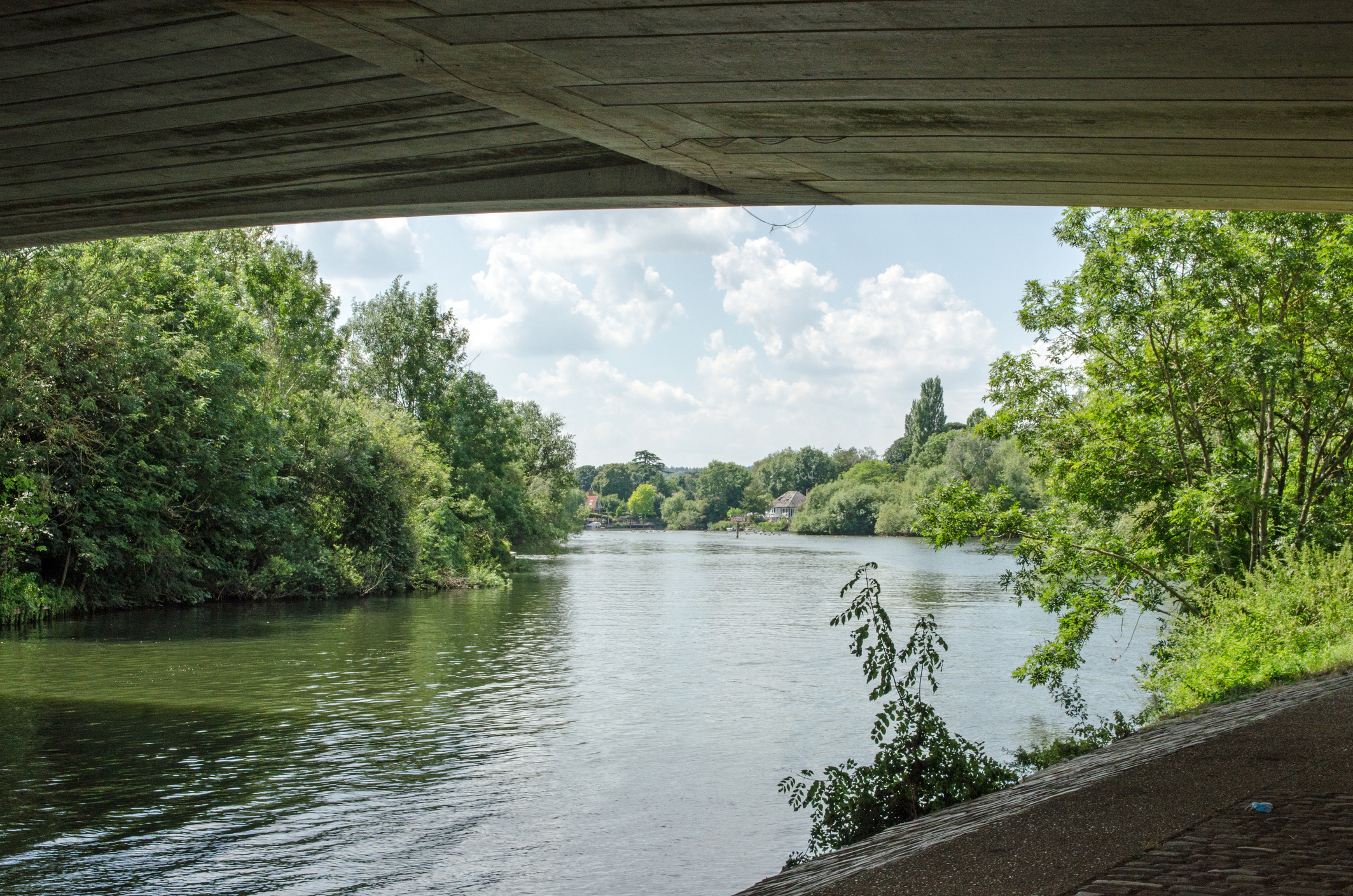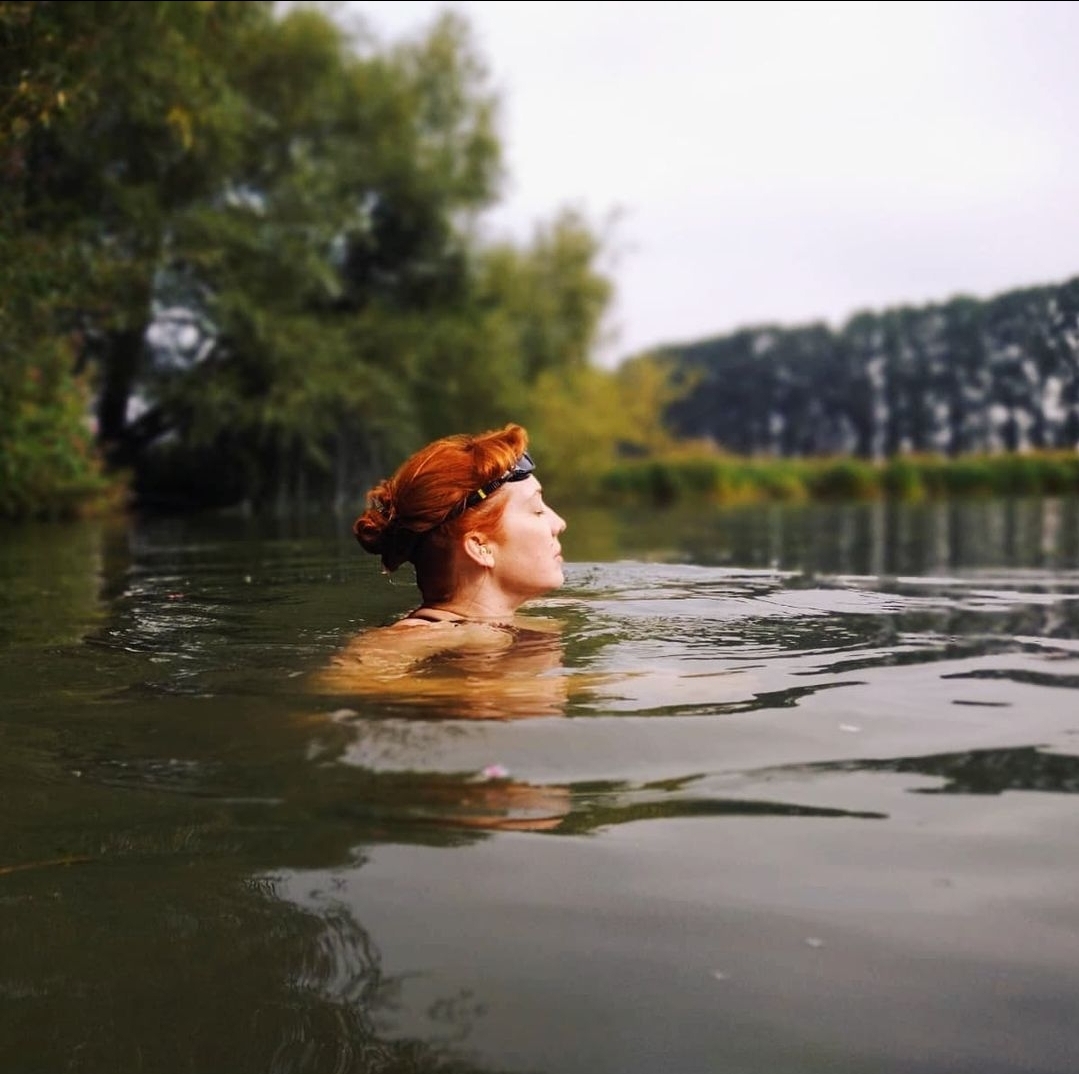"We're not responsible for telling you whether you can swim in the rivers or not" - shocking message from water company polluting a world-famous river
Water company on the defensive after discharging dangerous levels of waste into the Thames

"We're not responsible for letting the public know whether they can swim in the rivers or not. That's up to them."
That was the message from water company bosses after dangerous levels of contaminants were found in the world-famous Thames river that flows through London.
British naturalist and explorer Steve Backshall took Thames Water to task after a study he commissioned discovered shockingly high amounts of bacteria and viruses near the company's treatment works at Little Marlow in Buckinghamshire, upstream from the UK's capital.
The following day Backshall released a video on Instagram (scroll down to watch it in full) where he asked Andrew Scott, head of waste water treatment at Thames Water, why the company wasn't warning the public about the river's hidden dangers.
Thames Water is responsible for providing drinking water and cleaning waste water in large parts of the South East UK, including London. The company is overseen by the Environment Agency, a government watchdog whose investigations into previous pollution incidents by Thames Water have lead to fines of millions of pounds.
Backshall told Scott: "[We found] very high levels of e.coli, of norovirus, of enterovirus, and levels of as little as 10 gene counts per litre would be enough to make someone sick. We've measured as high as 40,000 gene counts per litre in the water after the outage."
He added: "You know that's happened, you know it's in the river, why haven't you told anyone?"
All the latest inspiration, tips and guides to help you plan your next Advnture!
But Scott defending the action saying: "It's part of a normal operations of sewage works and part of our storm permit for the treatment works."
Backshall is very passionate about water safety and has partnered with River Action UK in his campaign to clean up the stretch of river. So he wouldn't let it slide, again telling Scott: "You know there are residents down here, there are people that use the river. You yourself were talking about the fact that school children come here to do mayfly counts on this river and you know that it could make them sick, so why aren't you telling anyone?"
Scott said: "What we have got is our sewer map that is available online at the moment where anybody can log onto it and they can see where, when we've spilt and as you're aware on this site we've only actually spilt three times in the last 12 months."
But Backshall pointed out, and Scott admitted when challenged, that one of those 'spills' – when effluent pours into the river from the site after a storm – lasted for 16 and a half hours.
Backshall went on: "So I, as a local resident would have to log on daily before I go for a walk with the dog to find out if you've done an outage? Does that seem right to you?"
This seemed to catch Scott off guard and he simply responded, "No."
And when Backshall asked him whether the river is safe right now Scott added: "You'd have to ask the Environment Agency that, I'm afraid."
"But you're the company that put the sewage in there," Backshall continued. "Surely that has to be your responsibility at some stage?"
Scott admitted the company was "partially" responsible for what was happening to the river but added: "We're not responsible for letting the public know whether they can swim in the rivers or not. That's up to them."
"It's up to us," Backshall continued. "Despite the fact that you know that there are unsafe levels of contaminants in that river right now."
Scott responded: "There will be unsafe levels of contaminants from our normal discharge, let alone our storm discharge, because we don't remove some bacteria and pathogens from our normal treatment process. There is no disinfection. The Thames at this point isn't considered a bathing water therefore our effluent is not safe, so our effluent is not safe to swim in and that's not for us to tell you what to do or not to do."
Backshall rounded off his interview saying: "People are going to get sick if you don't tell them what you've just told me."
To which all Scott could say was: "Right okay, I'm not sure what to say about that."
A post shared by Steve Backshall (@backshall.steve)
A photo posted by on
In his original video Backshall revealed the results of a study carried out by water research specialists at Bangor University, including renowned wetlands and ecology expert Dr Christian Dunn.
Backshall said: "The Thames is toxic. These are the results that I got from my independent survey that I had done after the last sewage outage by Thames Water just upstream of here and they are horrifying.
"We have norovirus, e.coli and enterovirus all present at levels way higher than you would need to get sick from being close to the river. In fact, in some cases so high that the laboratory technician refused to open them.
"We have bacteria present here at tens of thousands of times what it should be, that's only present in human guts.
"We have phosphates, nitrates and ammonium off the scale, all at environmentally damaging levels, which could lead to the death of the entire ecosystem. So don't even think about wild swimming here. People who are canoeing or rowing, treat the river as if it is a biohazard. I wouldn't even allow your dog into the river right here. It could seriously be dangerous to them.
"If I was to discharge my sewerage system here I could be arrested for it. Yet in just one single outage just upstream from here Thames Water had 16 hours of it going into the river.
He added: "Something has to be done about it now. This is not a drill. This is a failing utility that is putting all of our health at risk."

The samples were taken downstream from the Little Marlow treatment works, which are run by Thames water. They were analysed by Bangor University waste water research centre and the university's wetlands group.
The research team said they found the following:
- Nitrates - 25mg/L. Acceptable levels under UK guidance are 0.01-3mg/L
- Norovirus - up to 39,562gcl/L. Concentrations over 10gc/L can cause you to catch the virus from the water
- Enterovirus - very high
- E.Coli - very high; enough to damage human health
- Crass phage - 36,000gc/L. Acceptable levels under UK guidance are 10gc/L.
The researchers said about the levels of crass phage that "Levels like this are found in undiluted effluent, not in a diluted river."
The researchers concluded that the pollution was coming from human waste and would lead to the death of the river's ecosystem.

Thames Water were approached for a comment and told Advnture: “Taking action to improve the health of rivers is a key focus for us, and we are engaging with Steve alongside other stakeholders to address their concerns.
"There are clear guidelines on how samples should be taken in order to give an accurate picture of the quality of the water and we would be keen to understand more about the approach taken in this instance.
"An upgrade is planned for Little Marlow Sewage Treatment Works to improve its ability to treat the volumes of incoming sewage, reducing the need for untreated discharges in wet weather."
Thames Water was fined £3.33million (GBP) in 2023 after a judge found the company had deliberately misled government investigators over an accidental discharge of untreated sewage and rainwater in 2017, which pour into several rivers, killing thousands of fish.
Prosecutions of Thames Water by the Environment Agency for pollution incidents have now led to fines of £35.7m between 2017 and 2023.
- How to stay safe in open water: Wild swimming for beginners

Rosee Woodland developed a taste for adventure at a young age, growing up in a home where camping was the default holiday, and good weather was a vacation bonus rather than a necessity. After bike-packing the length of France in her mid teens with her family, she started to undertake solo forays in her 20s, usually without the benefit of much technical gear at all. Happily, the years she later spent as a mountain biking journalist eventually gave her an appreciation of decent kit! These days she loves a water-based adventure, and is an outdoor swim coach, and a keen free diver. She has a soft spot for Northern Ireland's Mourne mountains, and can also be found hiking and kayaking in Pembrokeshire and the South West of the UK.
